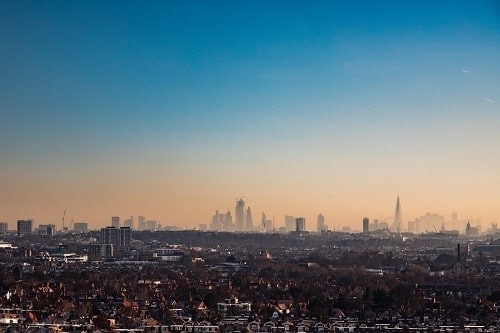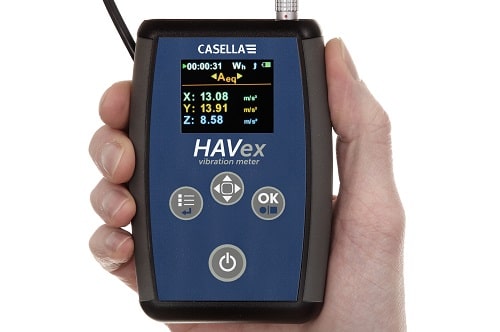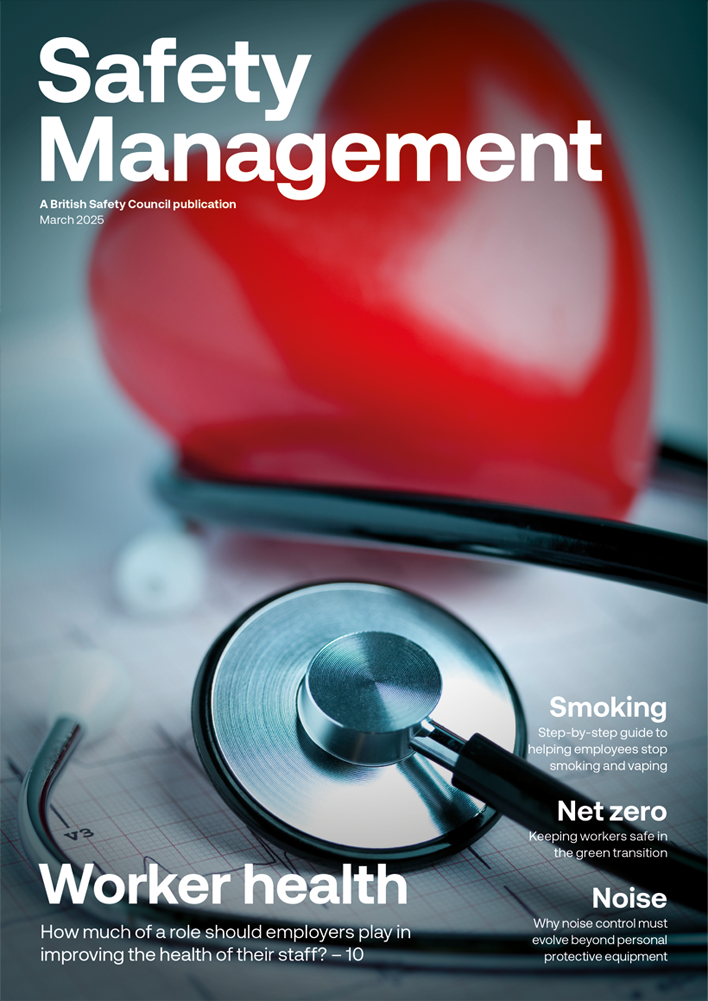Our campaign Time to Breathe, to be launched on 12 March, is looking to draw the attention of employers, policy makers and regulators to start taking seriously the risk of air pollution to the health of outdoor workers. We also offer Canairy, an innovative new mobile app, to help.
Features
Invisible polluted air, invisible workers
On average, we spend about 90 per cent of our time indoors, at home or at our workplace. Not those who work outdoors. For many outdoor workers, particularly those working on or near busy roads, breathing invisible polluted air every day is a normal part of the job. Yet, they and those who work in and around higher levels of air pollution, are being ignored while their health is surely being put at risk.
Caught in a blind spot
Even though these workers in their thousands help us cross the road, fill potholes, guard our children, deliver our food or maintain the infrastructure of our cities and towns so that we can have clean water, electricity, wifi or cycle lanes, too little interest has been shown up to now in how their health might be damaged by ambient air pollution.
The invisibility of ambient air pollution is matched only by the invisibility of actions to help these workers.
Who is prepared to speak out about this? Not the regulator charged with protecting workers from risks associated with their work. In a recent response to our Parliamentary Questions, we heard loud and clear from Sarah Newton MP, minister of state for disabled people, health and work, that HSE “does not regulate environmental exposures” and further, that it “is not currently undertaking any research to better understand the effect of polluted air on the health of outdoor workers”.
She goes on to explain that in the UK, responsibility for meeting air quality limit values is divided between Defra for England and the national administrations in Scotland, Wales and Northern Ireland. Defra also has a UK-wide role to co-ordinate assessment and air quality plans. All very comprehensive until you consider how the latest Clean Air Strategy 2019, released in January, does not mention once the vulnerabilities of outdoor workers. Though it calls for clear and transparent information and air quality forecasts to help protect “children, the elderly and individuals with pre-existing cardio and respiratory conditions”, there is little or no mention of those workers who spend most of their time working on or near busy roads.
Ignoring the insights provided by the Royal College of Physicians 2016 report Every Breath We Take, the strategy is yet again another example of how the protection of workers falls between the cracks of those institutions charged with protecting them.

People who are more exposed to pollution because of their jobs (e.g. those who work outside) are at increased risk of cancer. Photograph: iStock
Risks to outdoor workers: the evidence
Some of this might make sense if there was no proof that the ambient environment presents any health risks. Yet, evidence from the World Health Organization (WHO) and others does exist, is highly concerning and governments and regulators should have been more proactive in addressing the risks of ambient air pollution to outdoor workers.
In 2013, the International Agency for Research on Cancer (IARC) concluded that outdoor air pollution is carcinogenic to humans and shows a consistent association with lung cancer as well as other diseases, such as respiratory and heart diseases. There is also a positive association with an increased risk of bladder cancer.
Outdoor workers are clearly identified as a vulnerable group.
According to the IARC information on air pollution and cancer: “The higher the level of exposure, the higher the risk. People who are more exposed to pollution because of their jobs (e.g. traffic police, drivers, street sellers) are at increased risk.”
The WHO, in its 2013 Review of evidence on health aspects of air pollution states that many studies have shown excess health risks in proximity to roads for such outcomes as cardiovascular and respiratory mortality.
The review also tells us that air pollution is linked to abnormal sperm count, mobility and morphology and a significantly higher percentage of spermatozoa with damaged DNA. Further, studies on female traffic police observed significantly higher plasma- free testosterone and follicle-stimulating hormone levels during the proliferative phase of the menstrual cycle.
The aforementioned Every Breath We Take report says that “it’s clear that outdoor air quality issues still apply to many workers, particularly those who work near sources of outdoor air pollution including, for example, urban-based traffic police and street cleaners”.
Canairy, the world’s first mobile app for outdoor workers
Ignored in the public debate on ambient air pollution and yet, faced with this evidence, it is not surprising that employers who take their duty of care seriously are left in a bit of a quandary about what to do. That is why we’re launching Time to Breathe, a UK-wide campaign on 12 March. The campaign will provide free resources – including posters and advice – aimed both at workers and employers to highlight the issue of outdoor workers and air pollution, advice on what to do about it and – crucially – gather information. Lots of information will be available on the Time to Breathe website.

Canairy will draw on King’s College, London’s map of pollution data – used by Mayor of London and Defra – to calculate an individual user’s exposure to air pollutants. Photograph: Simon Morris
Beyond raising awareness of the risk though, we wanted to do more and provide a practical tool to help employers and outdoor workers. In a world’s first, with King’s College, London, the British Safety Council is introducing Canairy, a free mobile app designed for employers and outdoor workers based in London.
Canairy’s unique feature is to draw on King’s College, London’s map of pollution data – used by Mayor of London and Defra – to calculate an individual user’s exposure to air pollutants and link this information to WHO limit values for nitrogen dioxide, ozone and particulates (both PM10 and 2.5).
It will also, for the first time, collect information to enable the mapping of where, and to what degree, exposure is happening across the capital. Employers will be able to access this exposure data as it relates to their own workers. All this information can help workers reduce their exposure in real time and employers to take more informed decisions as they schedule outdoor work to avoid the worst levels of toxic air – turn to page page 19 to see how one of our supporters, Kier, is using Canairy.
We want as many London-based employers to trial Canairy and help us build up a rich and accurate portrait of the exposure faced by outdoor workers. This will be important as we move to policy-led campaigning to, for example, call for better research into links between occupation and health data; or for tighter controls: this kind of information tends to focus minds and initiate action.
Going public
We are launching both Time to Breathe and Canairy in Oxford Circus on Tuesday, 12 March 2019, at 8.45am. With a high degree of inertia putting the health of outdoor workers at risk, we want the launch to make a lasting impression and be a spur for action. The public should know more about this issue and put pressure on their MPs to act.
Outdoor workers have a right to clean air. It’s Time to Breathe.
To help us make the launch as visible as possible we’re looking for volunteers.
Campaign launch:
12 March 2019, 8:45–10:30am 8 Argyll Street, Oxford Circus, London W1F 7LA (Opposite London Palladium)
More information at:
britsafe.org/timetobreathe
britsafe.org/volunteers
FEATURES

5 trends to watch in the safety sector in 2025
By David Head, Draeger Safety UK on 19 March 2025
Dräger’s annual Safety and Health at Work Report provides a useful insight and snapshot into the views of employees and managers on safety in UK workplaces. This year’s report suggests employers need to increase and refine their efforts in areas such as employee mental wellbeing, more structured safety training and greater use of digital and connected safety technology.

Get a hold on HAVS, before it’s too late
By Tim Turney, Casella on 18 March 2025
Employers may need to carry out measurements of hand-arm vibration from hand-held tools and machinery to identify if workers are at risk of debilitating and permanent damage to their fingers, hands and arms, but it’s essential the measurement equipment is used in the correct way.

The UK Hearing Conservation Association: how we work to promote the protection of the nation’s hearing health
By Leah Philpott, member, UKHCA At Work Group on 14 March 2025
The UK Hearing Conservation Association is a multi-disciplinary association that strives to prevent damage to the nation’s hearing health and other noise-related health conditions through a combination of practical, evidenced and cost-effective campaigns, awareness-raising activities and best-practice advice. It is therefore a great forum for those wishing to keep abreast of the latest developments around hearing health – both in the workplace and in recreational settings.



